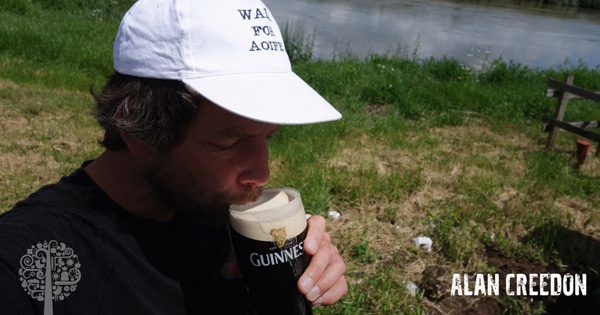When I was a child, I grew up in rural Ireland, where neighbors would help each other with the harvest, clubbing together for specialized baling equipment to make round silage bales as winter fodder for the cows. To me, the experience was magical, both because I got to be involved in this unusual, neighborly collaboration and because I was privy to ‘the men’ (as it was then) chatting about ‘manly’ things like hydraulic hoses, slipping clutches, and spring tines. This was fodder for my own sense of connection to the earth, annual cycles, community, and machines.
That Was Long Ago
It’s a lot more complicated these days, that’s for sure, as ‘generational’ farmers drop out, often not working quickly enough to adapt to the tighter budgets and large outlays needed to make farming and growing efficient. Big farmers who are up for taking risks swallow up the smaller ones, and the close-knit, micro-farmers of old fade into memory.
Local Food Movements
I now work in the UK with growers and retailers, trying to recreate those communal collaborations in the modern world. Most growers I know now are what I’d call newbies – keen and lean with strong ethics (both work and environmental) and a completely different attitude to maintaining a living and their land. I love working with small growers because they are generally flexible, up for trying out new ideas and ways of both growing and selling produce.

Where I live, we have steep valleys and boggy ground, and it is generally unsuitable for veg growing, yet we have growers here who carve their tiny sites out of hills and bogs and take a lot of pride in what they do.
When COVID hit last year, the small box scheme I run quadrupled its turnover in a matter of weeks and has maintained it at around three times the original turnover since. As soon as this started to happen, the opportunity of a lifetime for local food had suddenly arrived – swept in with the disease, which seemed to help people see what was important to them. We were buying up every possible morsel of local veg, taking everything growers had – whatever turned up was going in the boxes that week – we would make it fit.
The value and power of the many small producers were apparent. Although it was a juggling act to bring it together from a buying perspective, it was worth every moment of stress, juggling seven local micro-producers and the wholesaler.
Heading In The Right Direction
More can be done, though! We are in this situation right now where we can embrace local food in a new way. As long as we’re prepared to take a chance as growers to see if retailers will buy (and as retailers, to purchase what’s offered), these times can lead to the wholesome development of local food chains, and indeed, relationships between growers and buyers in a natural and accommodating way.